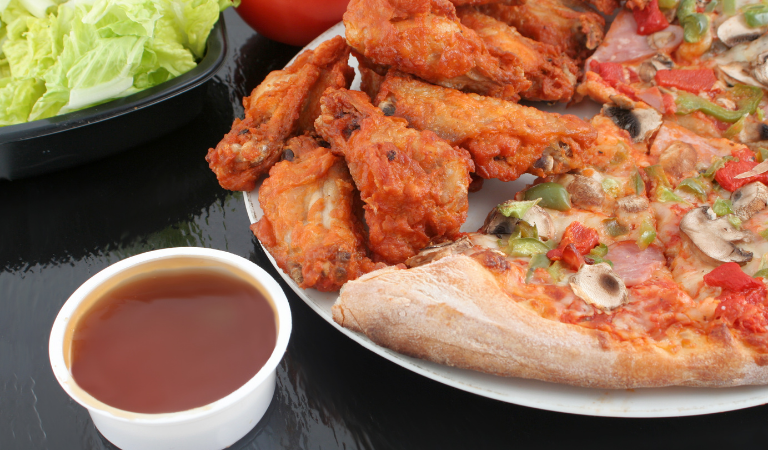Stats Of The Week
The State Of The Industry
In 2021, consumers expect outdoor dining and curbside pickup to stay around and become standard practice, according to research from Constant Contact. New research shows that customers want restaurants to offer more creative offerings in 2021 with 40% in favor of dinner and movie packages, 14% interested in cooking classes, and 12% for virtual wine tastings. This research found that 52% of consumers said they would feel safe returning to physical stores in less than six months, and 44% said local restaurants, markets, or grocery stores are the first small businesses they will go to post-pandemic.
How Projected 2020 Trends Panned Out Through The Year
As with every year, trendwatchers had their predictions for the fads that would dominate restaurants in 2020, but no one could have predicted a pandemic would upend the industry. Here’s a look back at some of the projected trends from the start of the year and how they turned out at the end of the year. One of the top projections for 2020 was operators simplifying their menus to streamline their prep and highlight plant-based specialty items. This prediction did come true this year but took a different approach. Restaurants trimmed down menus to cut costs and improve their off-premise channels during dining room closures.
Another 2020 trend prediction? Ghost kitchens. They were expected to expand with restaurant owners looking for partnerships to grow their delivery channels without disrupting in-store operations. This prediction took off, and then some, this year with many operators creating off-premise-focused models to survive through low costs and opportunities to expand their business that ghost kitchens offer.
What’s Trending
Top 2021 Food Trends
As 2020 comes to a close, here are the top food trends operators should keep an eye on in the new year. Packaging: how it looks, the messaging, and the information it provides are taking center stage in 2021. With operators depending on off-premise operations to survive, they need to make sure that their food packaging is doing all of the talking and creating a brand image that differentiates them from the rest. In the time of COVID, gone is the appeal of homemade and handcrafted foods or drinks. Contactless is in and any adjective that portrays meals that have had minimal contact, such as bot-made or sanitation-verified, will become buzzwords that customers are looking for.
At the beginning of the pandemic, restaurants quickly pivoted to take out or delivery to stay afloat and had little time to take into account the negative impact their food packaging may have on the planet. In 2021, consumers are looking for ways to undo some of the harm of using disposable products caused and want food packaging that does it all. Consumers want their meals to be packaged in containers that are easily recyclable, minimal, and don’t contain harmful chemicals that are bad for the environment or themselves.
CDC Advocates For Restaurant Workers To Be In Early Round Of Vaccines
The Centers for Disease Control and Prevention has recommended that foodservice workers be amongst those that fall under essential workers in an early round of vaccination distributions. Transportation, construction, finance, energy, and media employees are also included in this group. Workers that fall into this category would be in the second round of vaccinations after healthcare workers. There isn’t a projected timeline of how soon restaurant employees will have access to the vaccine but they must wait behind 21 million U.S. residents 75 and older and 30 million frontline essential workers. The essential worker prioritization for the vaccine is determined by state governments, so the accessibility of the vaccine to restaurant workers will differ across the country.
The NRA & Delivery Companies Create A Guide For Lawmakers
The National Restaurant Association worked in partnership with DoorDash, Grubhub, and Uber Eats/Postmates to develop Public Policy Principles for Third Party Delivery. These guidelines provide best practices for third-party delivery to inform lawmakers of the relationship between restaurants and delivery companies. This is the first time restaurants and third-party delivery companies have worked together to create principles that include food safety, transparency on fees and contracts, sales tax collection, and alcohol delivery. The unique partnership comes as both parties have experienced an uptick in delivery orders throughout the pandemic.
"Until now, the relationship between restaurants and third-party delivery companies lacked a national framework to protect restaurants. This agreement represents an important first step in an ongoing dialogue between restaurants and third-party delivery companies about ways to improve our relationship going forward," Mike Whatley, vice president for state and local affairs for the National Restaurant Association, said to Restaurant Dive.
Operators Deliberate Over Requiring Vaccinations Or Not
As restaurant workers become the next group in line to receive the COVID-19 vaccine, after first responders and the elderly, employers are debating whether or not to require their employees to take the vaccine. In recent weeks, Chipotle Mexican Grill and Cousins Sub have announced they will not mandate their employees to take the vaccine but do encourage them to do so. The NRA has called for the cost of vaccinations to be covered by the government but has not made any recommendation that the vaccine should be required. Restaurant owners are taking into account the worries that some may have in the mistrust of the government and the quickness in which the vaccine was made. A spokesperson for Cousins Subs told Restaurant Business that the chain had concerns about intruding on the personal decisions of their employees and did not want to cross a line of invading employees’ medical rights.
Most Popular Menu Items Of 2020
At the start of 2020, it was predicted that global cuisines, plant-based foods, and a boost in
sustainability would be the top trends of the year. With the coronavirus affecting everyone’s lives and
forcing restaurants to pivot to off-premise operations, the want for unique cuisines and reducing waste
were put on pause. Instead, customers went for comfort foods and best selling items like chicken wings
and pizza to get them through this tough year. Restaurants also got creative with how they offered their
menu items and developed family-sized meals and meal kits to help ease the burden of families while
giving them an activity during dining room closures. There was still a rise in plant-based foods and
drinks this year with non-animal alternative proteins expanding into breakfast items. Also, oat milk as
a dairy-free alternative has become readily accessible and its mention in menu items has increased 50%
year over year, according to Technomic.
Bright Spots In A COVID-19 World
Barstool Sports Raises Money For Small Businesses
Barstool Sports founder Dave Portnoy announced the Barstool Fund as a fundraiser to assist small businesses who have been affected by the pandemic. The company donated half a million dollars to the fundraiser and then challenged others to donate as well, resulting in over $8 million being raised so far. The Barstool Fund is committed to helping businesses on a month to month basis until they are in a stable financial position and is selling the restaurant’s merch off the Barstool website. So far, the initiative is supporting 30 businesses and continues to fundraise to support more businesses.
“These people aren’t going out of business because they’re not successful or not making any money. It’s because they have no other choice. They’ve been dealt a hand that nobody can play,” Portnoy said in a Twitter video.
Nurse Fundraises For Local Restaurants
Julie Freeman, a nurse in Hamilton, Canada, started a fundraiser called Feast In The Hammer to help local restaurants and vulnerable residents during the pandemic. Freeman created a GoFundMe campaign to bring together local restaurants and charitable organizations by delivering purchased restaurant meals to families. The fundraiser has raised over $5,000 and provided meals to 30 families over the holidays.
“The holidays can be such an uncertain time for so many, and with the added impact of the COVID-19 pandemic, I thought this would be a great way to support two important causes with one campaign,” Freeman said to Global News Canada.
Quote Of Hope
"What you see here is people showing you that boots on the ground works, that programs work, that they can uplift communities one meal at a time." - Chef José Andrés, restaurateur and founder of World Central Kitchen









